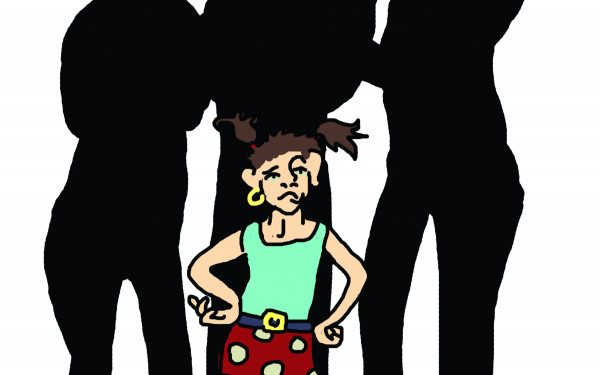Centre for Gender Advocacy to Challenge Quebec Sex-Change Law in Court
A Concordia fee-levy group plans to sue Quebec if urgent action is not taken to remove barriers to legally changing one’s sex in the province.
It’s a matter of life and death, argues the Centre for Gender Advocacy, which is mandated to promote gender equality and empowerment.
“People are dying. There’s no other reason,” said Gabrielle Bouchard, the Centre’s peer support and trans advocacy coordinator.
“There’s a 40 per cent suicide rate among trans communities […] I think that speaks enough as to why this needs to be done now,” said Bouchard, referring to the percentage of trans people who have either committed suicide or attempted to take their own life.
The Centre will be represented by not-for-profit legal clinic Juripop, and is arguing that the Quebec Civil Code’s rules for sex designation are unconstitutional.
Bill 35, “An Act to amend the Civil Code as regards civil status, successions and the publication of rights,” would strike the Quebec Civil Code requirement in Article 73 to have a change of sex designation published in a newspaper. The bill is in committee at the National Assembly, with less than a week left in the current session.
If Bill 35 fails to go to a vote before this session ends, Bouchard says the groups will have no reason to wait any longer to file their lawsuit.
“If they don’t, there’s no reason we would wait. The Liberals and the PQ and the CAQ all have the opportunity to get all the necessary information to make an informed decision, now they just need to make it,” she said.
While Bill 35 would make changes to Article 73 of the Quebec Civil Code, it’s the constitutionality of Article 71 that the Centre is taking to court.
Article 71 states that those wishing to legally change their sex must be at least 18 years old, a Canadian citizen and undergo surgery—a hysterectomy for trans men and vaginoplasty for trans women.
“People are dying. There’s no other reason. There’s a 40 per cent suicide rate among trans communities […] I think that speaks enough as to why this needs to be done now.”
—Gabrielle Bouchard
“The definition of identity based on the [sole] consideration of sexual organs is a blatant example of sexual discrimination,” said Juripop executive director Marc-Antoine Cloutier in a press release, arguing that Article 71 infringes the rights of trans people protected by both the Canadian Charter of Rights and Freedoms and the Quebec Charter of Human Rights and Freedoms.
Juripop and the Centre also argue that requiring citizenship before a legal sex change impedes one’s integration into Quebec society.
Instead of requiring people to be 18 years old to legally change their sex, the Centre is calling for the age to be brought down to 14, the age of consent for medical treatment and hospitalization for less than 12 hours.
“This is not only just important to trans people but vital for intersex people,” who Bouchard says are “medicalized” from birth since a doctor will decide which genitalia to surgically remove.
“Often when the doctor is making the decision, the doctor is wrong,” said Bouchard.
“We’re telling these people they have to wait until they’re 18 to have this mistake corrected, and we promise them more medicalization and operations until they can actually do it.”
The Centre filed a complaint with the Quebec Commission for Human Rights and Youth Rights in August on behalf of Quebec trans people, arguing the article is discriminatory. They are following up with a more precise complaint, with the names of specific people who have been discriminated against because of this legislation.
“[The suicide rate for] the population in general is four per cent. The gay and lesbian suicide rate is 18. We’re talking about 40 per cent [for trans people],” said Bouchard.
“That number goes down once social barriers go down and people can have their gender identity recognized, [but] people can’t just do that the way the law is right now.”
Juripop and the Centre for Gender Advocacy are raising funds for their legal challenge to the Quebec Civil Code. To donate or learn more, visit Juripop’s website.




3_600_375_90_s_c1.jpg)


